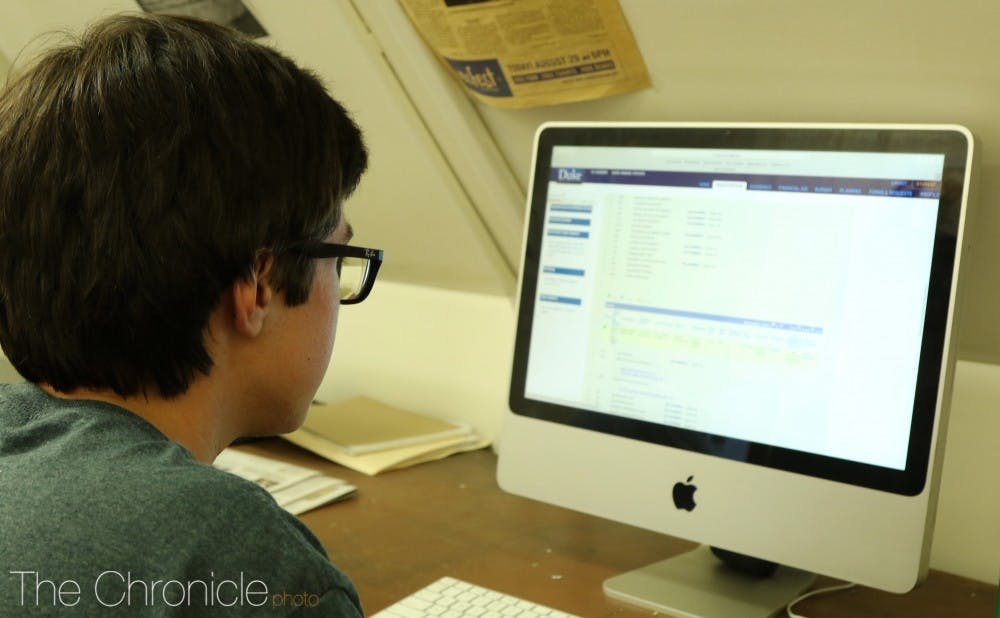Trinity College of Arts & Science’s new course evaluation format, rolled out for the 2021 fall semester, promised students a more user-friendly interface, increased nuance in feedback and easier access to past evaluations. But the revamped course evaluations haven’t just benefited students—some professors are finding unprecedented quality and quantity in last semester’s feedback.
Brian Coggins, assistant research professor of biochemistry, wrote in an email to The Chronicle that he noticed a “moderate increase” in the quantity of responses, from 25% to about 40% of students choosing to complete the form. He shared that though there are many considerations that go into designing STEM courses and curriculum, student voices are of great value.
“Committed teachers are going to monitor a variety of measurements of the effectiveness of their teaching, with the student voice being one important part of that,” Coggins wrote.
Though Emily Klein, department chair of earth and climate sciences, did not observe a significant increase in the volume of responses, she did find that the “quality of feedback” as a whole improved, she wrote in an email.
She attributed this change to the more insightful questions on the new survey. The question, “What knowledge, methods, skills, insights, or ways of thinking did you develop in this course? Please describe three specific things you learned,” evoked meaningful reflection from students, according to Klein.
Klein wrote that her students, mostly first-years, responded with both academic topics within the course and more pragmatic college-life skills, such as time management. Those responses are invaluable to educators as they strive to support students both inside and outside of the classroom, according to Klein.
“I had never received these kinds of comments using the previous course evaluation system, and it will be a big help to me in future years in figuring out how best to help students learn and navigate their academic lives,” Klein wrote.
Professor of History Thomas Robisheaux echoed this sentiment, writing that he appreciated the increased specificity of the new evaluation system through individualized comments.
For Robisheaux, the overall effectiveness of the new system will “depend on how many instructors use the evaluations to evaluate their own teaching and respond to areas that need improvement. This is very specific to individual instructors," he wrote.
First-year Austin Chrisley said that he participated in course evaluations because he wanted to “anonymously and honestly” share his opinions with professors, a practice he believes benefits both future students and Trinity departments.
“In terms of how much [course evaluation feedback] should shape a professor’s teaching methods, I think it should be substantial,” he said.
Get The Chronicle straight to your inbox
Signup for our weekly newsletter. Cancel at any time.

Sevana Wenn is a Trinity sophomore and features managing editor of The Chronicle's 118th volume.

